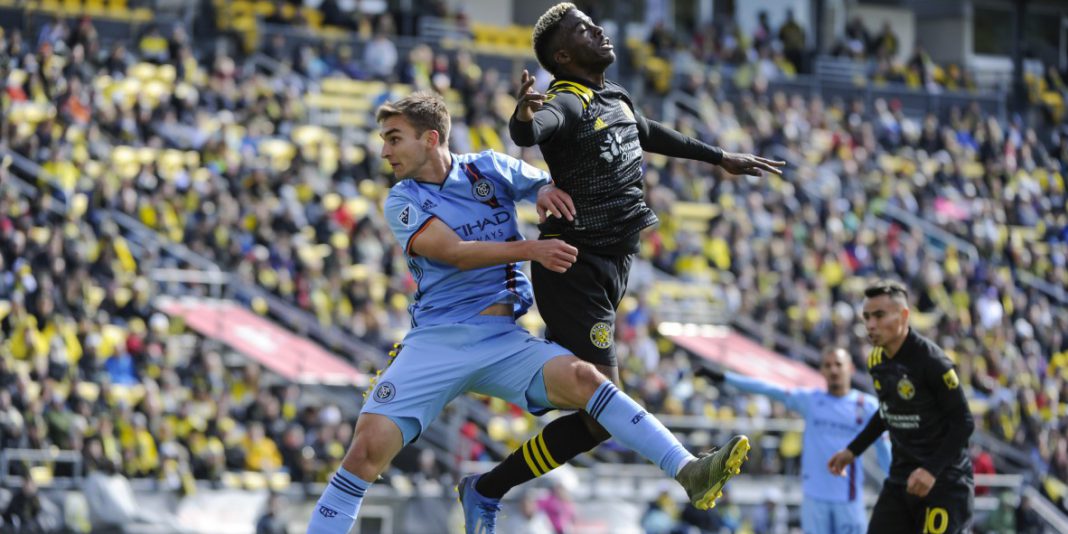Two years on from the strikedown of PASPA, the US sports betting sector continues to make waves and generate excitement among industry stakeholders and professional sporting leagues. Among those looking to take a sizeable bite from the sports wagering pie is the rapidly expanding Major League Soccer (MLS)
Aside from making MGM Resorts the league’s first official gaming partner in March 2019, the MLS updated its commercial policies to open up naming rights opportunities for sports betting companies. Its franchises, meanwhile, were also given the opportunity to grant gambling firms the rights to advertise within venues and during broadcasts.
Moreover, firms were invited to set up private lounges at franchise-owned stadia/properties as the American soccer competition started down a path similar to that of its European counterparts.
As well as this, the MLS looked to quickly capitalize on the growing US sports betting market by becoming the first major sports league in the region to enable its franchises to acquire sports betting shirt sponsorships in June 2019. The move saw it leap ahead of its North American sporting peers.
With the 25th anniversary MLS season now underway, that ruling is now effective with DC United becoming the first franchise to don a jersey emblazoned with the branding of a gaming and gambling industry organization – Caesars Entertainment – on its sleeve.
Although currently unconfirmed, DC’s deal with the gambling operator reportedly includes the addition of a Caesars-operated sports betting facility at United’s Audi Field home stadium.
The historic hook up seems, at first, a smart move by the Washington based club as it looks to capitalize on the palpable sense of excitement surrounding the rising industry in the US. No doubt the franchise, and the league in general, will have been looking towards their cousins across the pond in Europe, specifically towards England’s Premier League, and witnessed how sports betting and soccer can prove to be a fruitful relationship.
That said, the MLS will also be eyeing the situation in the UK where something of a gambling sponsorship backlash has taken the gloss off such deals.
Yes, the sports betting market is fruitful and can very much be seen as a wealth of untapped potential for the MLS. However, the same would have been said in England following the passing of the Gambling Act 2005 which allowed gambling companies to advertise on television and radio for the first time.
Although gambling companies had advertised on shirts in the Premier League before then, the passing of the act was very much a catalyst that resulted in the volume of sponsorships from the gambling sector increasing exponentially.
The latest 2019/20 Premier League season has seen half of the competing teams negotiate on-shirt gambling sponsorships, whereas the English Championship saw 17 out of the 24 clubs do the same.
As a result of the high levels of gambling sponsorships, a slew of major authoritative figures involved in English sport have called for a review of the regulations, with some even calling for a ban on betting sponsorships, as was recently reported by the BBC.
The public service broadcaster originally reported back in January that Sports Minister Nigel Adams confirmed a review of the Gambling Act 2005 would be taking place following his statements which labeled football as being too dependent on betting sponsorships.
It has since been reported that Gambling with Lives, an organization set up by families of young men who have committed suicide as a result of gambling addiction, and The Big Step, created by recovering gambling addict James Grimes, have joined forces on the matter.
That has already seen a letter drafted to UK Prime Minister Boris Johnson which requests him to outlaw all gambling sponsorships in football.
The letter, which states concern over ‘young fans being desensitized to the severe risks of addiction through gambling normalization in [soccer]’, has placed gambling sponsorships in English soccer in a precarious position.
A ban such as this would, of course, impact the gambling sector. However, given the high percentage of teams sponsored, the shortfall in cash felt by the soccer clubs would be much greater. And in the case of a select few, it could be seen as a negative catalyst that culminates in their relegation from the Premier League.
As of this moment, the future is unclear in regards to football sponsorships in England. However the US, and more specifically the MLS, which has modeled its growth based on that of its European counterparts, would be well advised to maintain a close watching brief across the pond and potentially prepare for similar pushback as it continues its development with the use of sports betting sponsorships.














